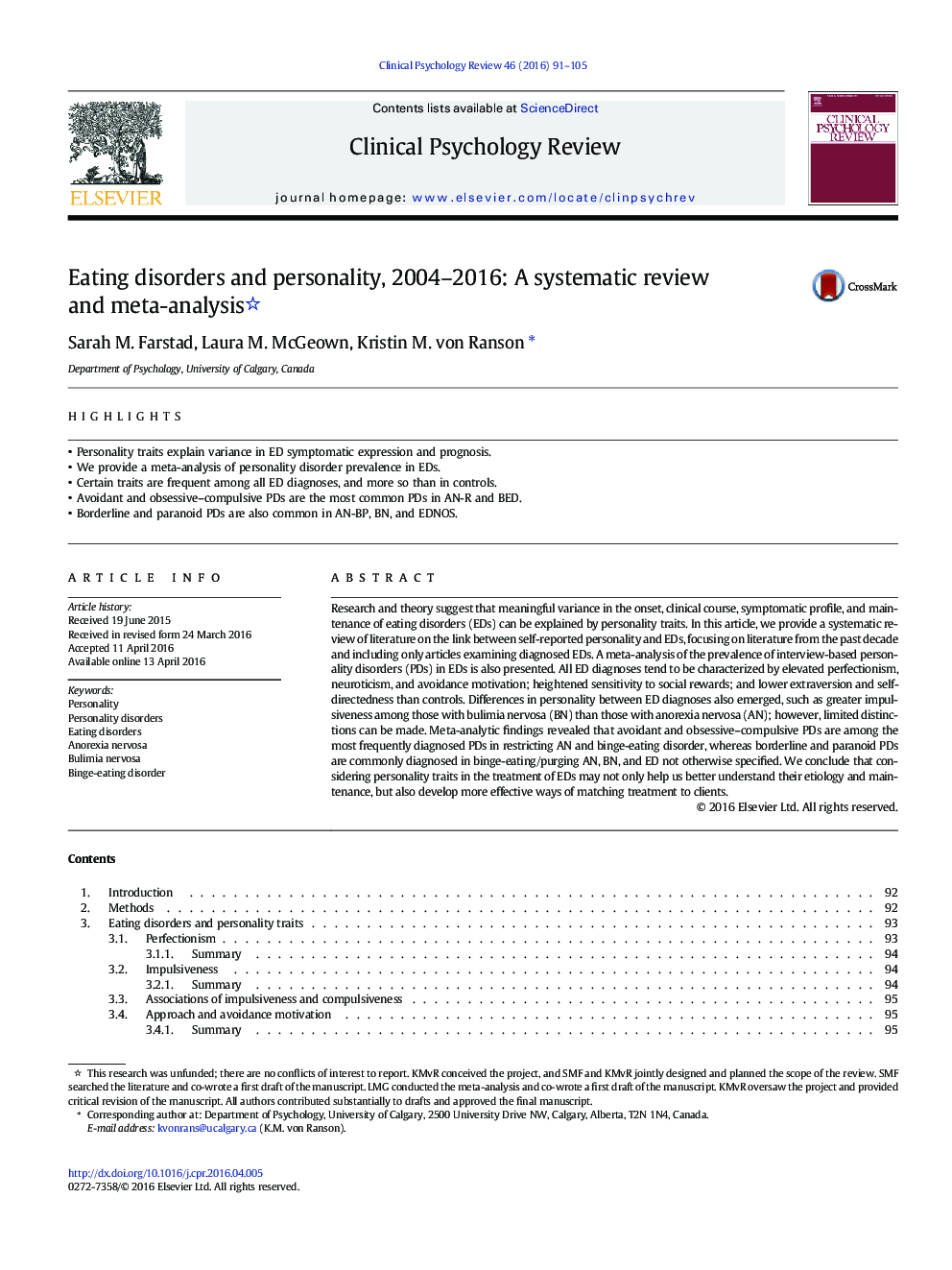| Article ID | Journal | Published Year | Pages | File Type |
|---|---|---|---|---|
| 903565 | Clinical Psychology Review | 2016 | 15 Pages |
•Personality traits explain variance in ED symptomatic expression and prognosis.•We provide a meta-analysis of personality disorder prevalence in EDs.•Certain traits are frequent among all ED diagnoses, and more so than in controls.•Avoidant and obsessive–compulsive PDs are the most common PDs in AN-R and BED.•Borderline and paranoid PDs are also common in AN-BP, BN, and EDNOS.
Research and theory suggest that meaningful variance in the onset, clinical course, symptomatic profile, and maintenance of eating disorders (EDs) can be explained by personality traits. In this article, we provide a systematic review of literature on the link between self-reported personality and EDs, focusing on literature from the past decade and including only articles examining diagnosed EDs. A meta-analysis of the prevalence of interview-based personality disorders (PDs) in EDs is also presented. All ED diagnoses tend to be characterized by elevated perfectionism, neuroticism, and avoidance motivation; heightened sensitivity to social rewards; and lower extraversion and self-directedness than controls. Differences in personality between ED diagnoses also emerged, such as greater impulsiveness among those with bulimia nervosa (BN) than those with anorexia nervosa (AN); however, limited distinctions can be made. Meta-analytic findings revealed that avoidant and obsessive–compulsive PDs are among the most frequently diagnosed PDs in restricting AN and binge-eating disorder, whereas borderline and paranoid PDs are commonly diagnosed in binge-eating/purging AN, BN, and ED not otherwise specified. We conclude that considering personality traits in the treatment of EDs may not only help us better understand their etiology and maintenance, but also develop more effective ways of matching treatment to clients.
